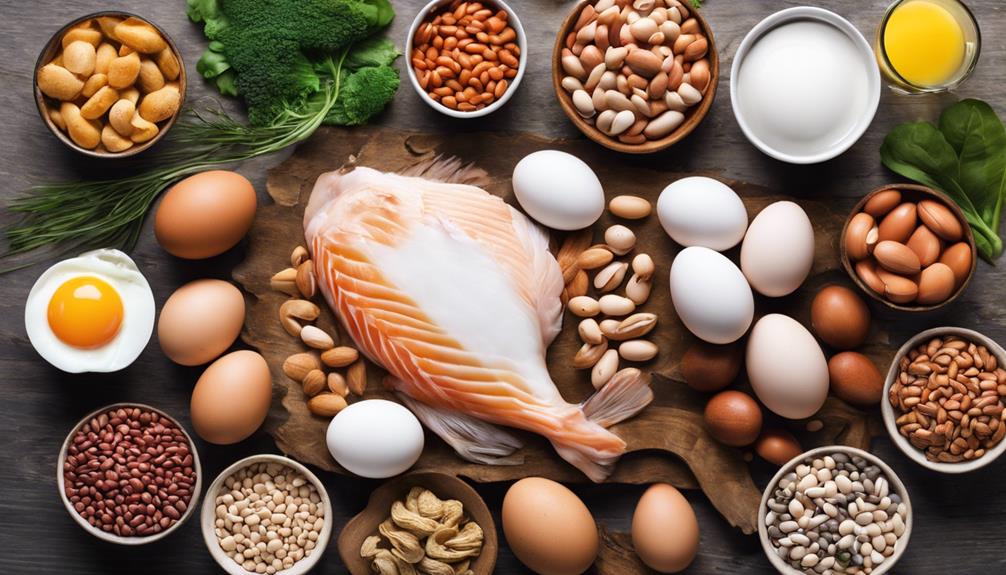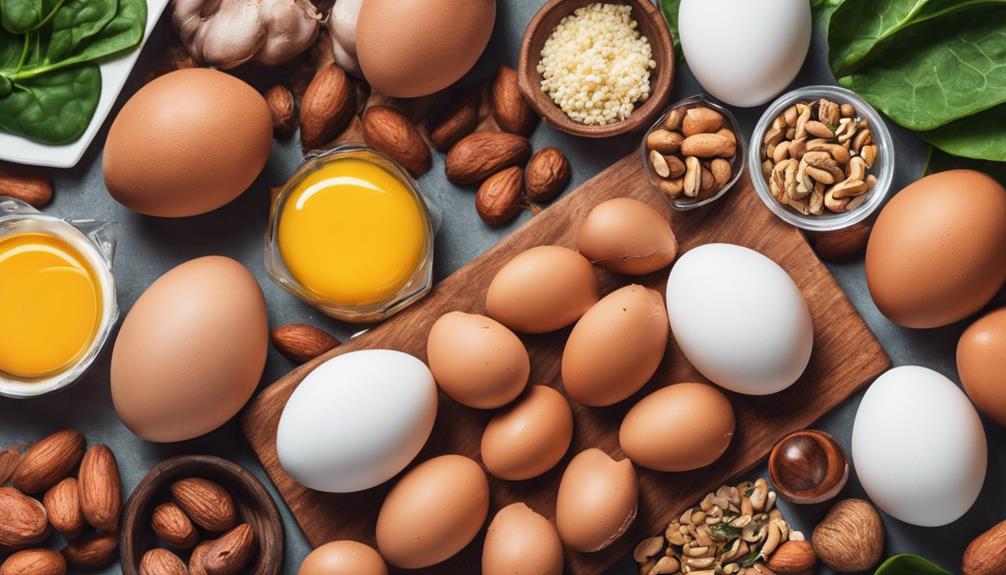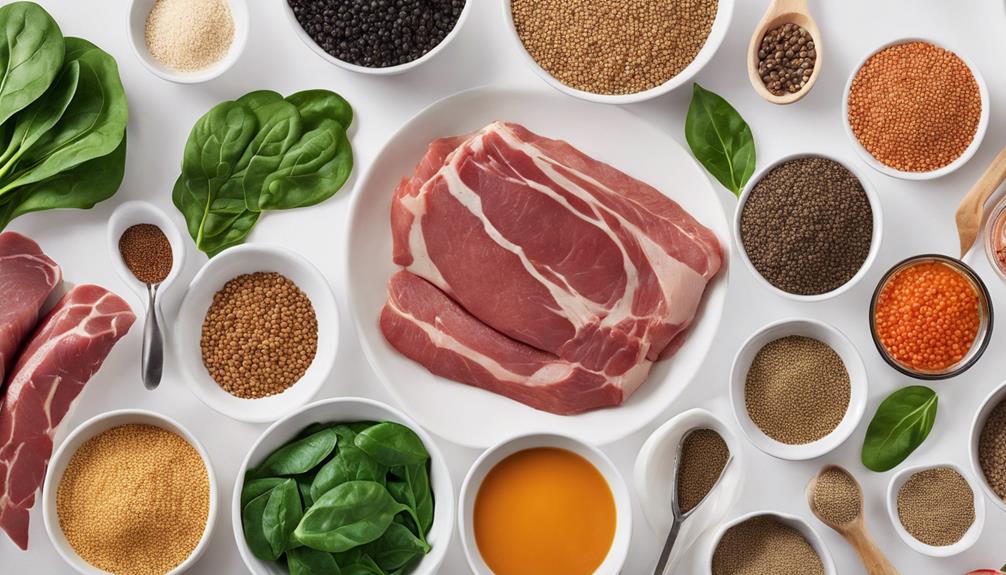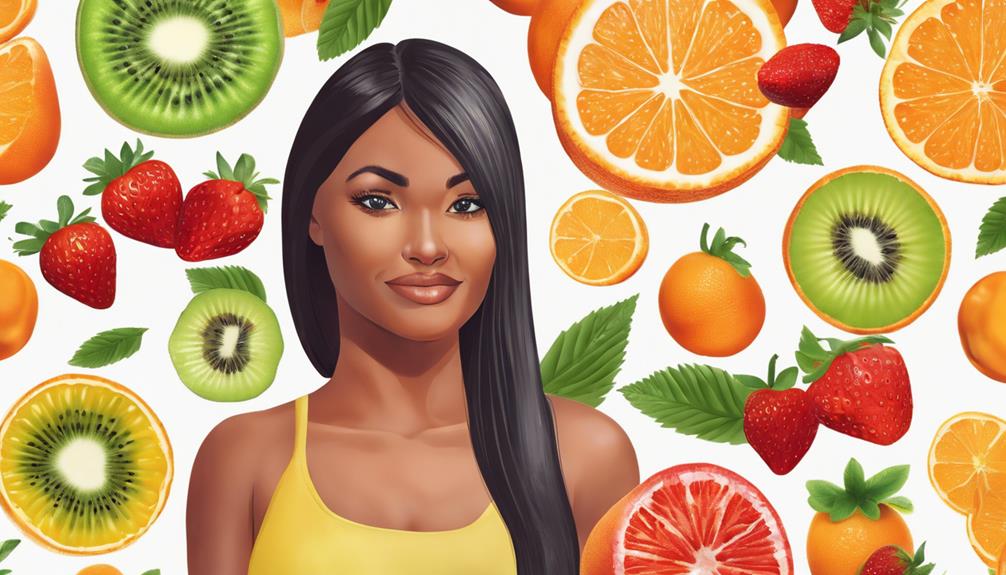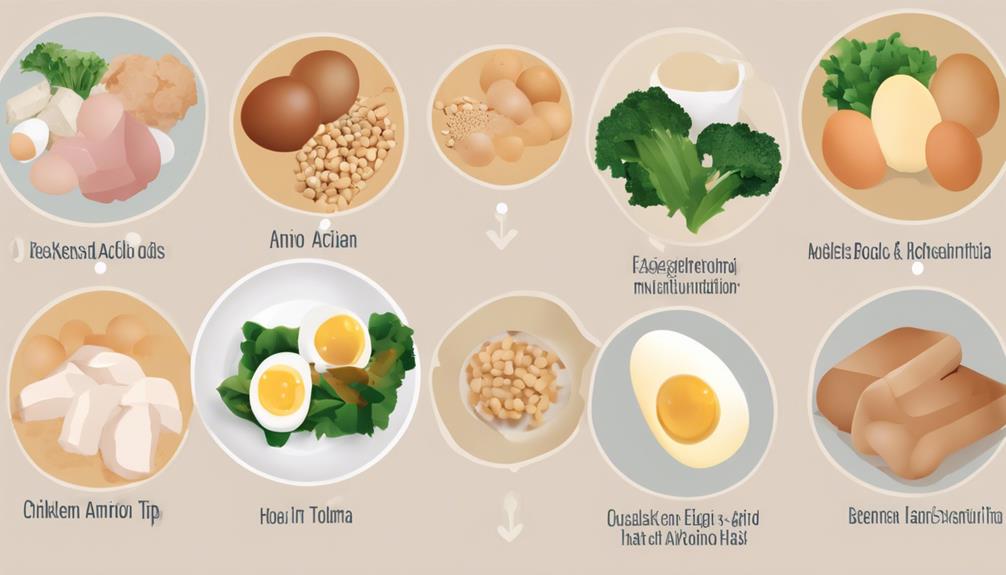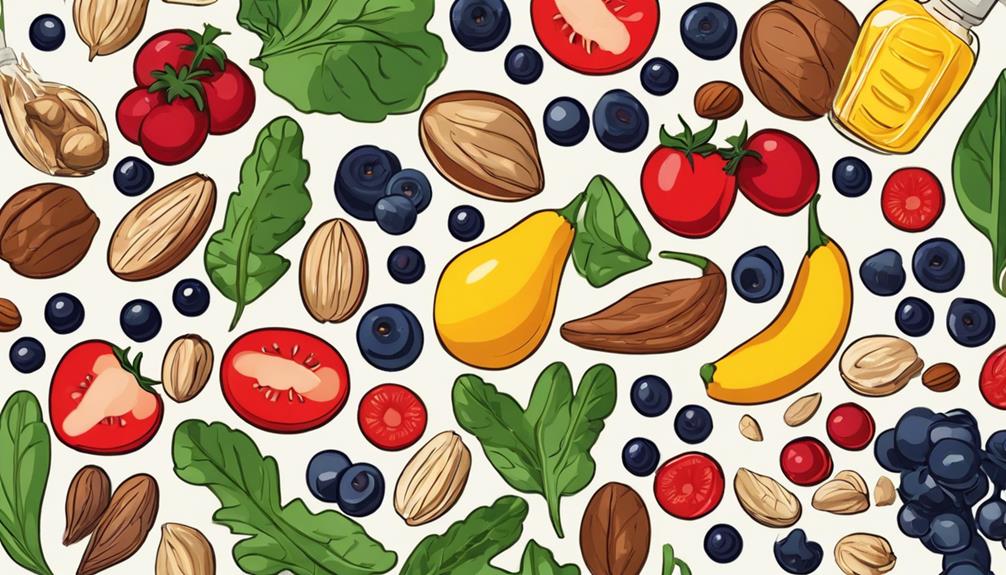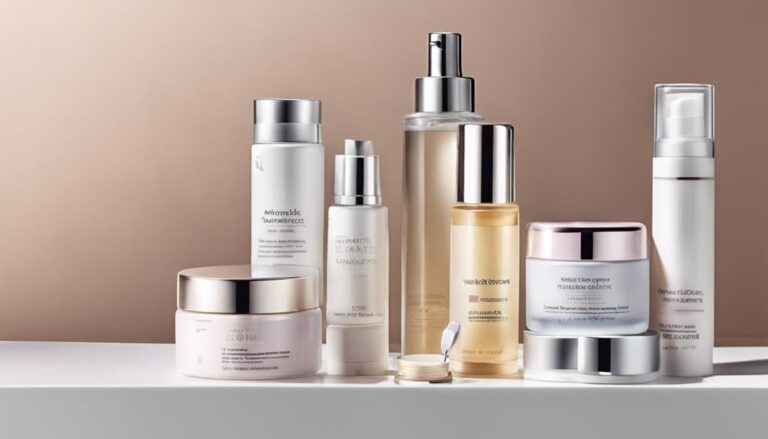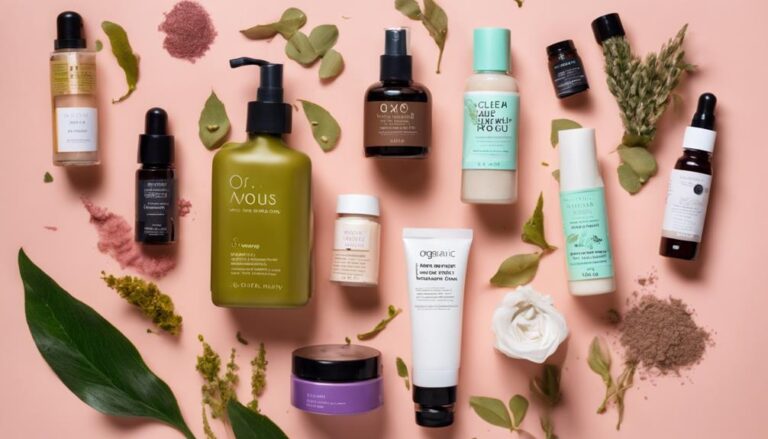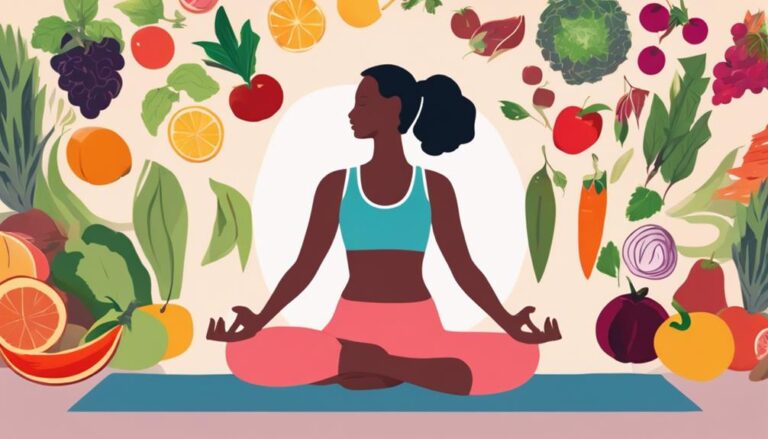Nutritional Tips for Stronger Hair
Did you know that your hair's strength and vitality can be significantly influenced by the nutrients you consume? Understanding how certain vitamins, minerals, and other essential elements can impact your hair health is crucial for achieving those luscious locks you've been dreaming of. By making simple dietary adjustments and incorporating key nutrients into your meals, you can support your hair from the inside out. Curious to learn more about the specific nutritional tips that can help you achieve stronger, healthier hair?
Key Takeaways
- Consume protein-rich foods like lean meats and nuts for keratin formation.
- Include Omega-3 fatty acids from fish oil and fatty fish for hair strength.
- Incorporate biotin-rich foods such as eggs and almonds for hair growth.
- Ensure adequate intake of Vitamin E from almonds and avocados for hair growth.
- Maintain iron levels with foods like lentils and spinach for healthy hair cell production.
Importance of Protein
Understanding the importance of protein in your diet is crucial for maintaining strong and healthy hair. Protein is a key building block for hair, as it helps in the formation of keratin, the protein that makes up your hair strands. Including sufficient protein sources in your daily meals is vital for ensuring your hair remains vibrant and resilient.
Protein sources such as lean meats, poultry, fish, eggs, dairy products, legumes, nuts, and seeds are excellent options to incorporate into your diet to support hair health. Ensuring you have an adequate intake of these protein-rich foods can help prevent protein deficiency, which may manifest as weak, brittle hair prone to breakage.
If you notice signs of protein deficiency in your hair, such as increased hair shedding, slow growth, or dullness, it might be time to reassess your diet and make adjustments to include more protein-rich foods. By prioritizing protein intake, you can promote stronger, more lustrous hair from the inside out.
Omega-3 Fatty Acids
To support the health and strength of your hair, incorporating Omega-3 fatty acids into your diet is essential. Omega-3 fatty acids, found abundantly in fish oil and flaxseed, play a crucial role in nourishing your hair follicles and promoting hair growth. These healthy fats are known to help reduce inflammation in the scalp, which can contribute to hair loss and dullness.
Fish oil is a rich source of Omega-3 fatty acids, including EPA and DHA, which are beneficial for overall hair health. Incorporating fatty fish such as salmon, mackerel, or sardines into your diet can provide you with a good dose of these essential nutrients.
Alternatively, flaxseed benefits those who prefer a plant-based source of Omega-3s. Flaxseeds can be easily added to your meals or smoothies to boost your intake of these beneficial fatty acids.
Biotin Boost
In addition to nourishing your hair with Omega-3 fatty acids, another key nutrient for promoting hair strength and growth is biotin. Biotin, also known as Vitamin B7, plays a crucial role in maintaining healthy hair by supporting the production of keratin, a protein essential for hair structure.
Biotin Boost
Biotin supplementation can be beneficial for individuals looking to improve the strength and appearance of their hair. Including biotin-rich foods in your diet is a great way to boost your intake of this vital nutrient. Here are some common sources of biotin:
| Biotin Sources | Serving Size | Biotin Content (mcg) |
|---|---|---|
| Almonds | 1 ounce | 1.5 |
| Eggs | 1 large | 10 |
| Sweet Potatoes | 1 medium | 2.4 |
| Salmon | 3 ounces | 5 |
| Avocado | 1 medium | 2 |
Vitamin E Essentials
For stronger and healthier hair, incorporating Vitamin E into your diet is essential. Vitamin E is a powerful antioxidant that helps support hair growth and maintain scalp health. This essential nutrient works by reducing oxidative stress and promoting blood circulation to the scalp, which is crucial for nourishing hair follicles and encouraging strong, vibrant hair growth.
Including Vitamin E-rich foods in your meals, such as almonds, sunflower seeds, spinach, and avocados, can significantly benefit your hair health. Additionally, Vitamin E supplements can also be considered to ensure you're meeting your daily requirements for this vital nutrient.
To enhance the effects of Vitamin E on your hair, consider incorporating it into your hair care routine as well. Look for hair products that contain Vitamin E or consider applying Vitamin E oil directly to your scalp for added nourishment.
Iron-Rich Foods
Vitamin E is not the only nutrient crucial for strong and healthy hair. Iron plays a vital role in the production of hair cell protein, aiding in hair growth and strength. Including iron-rich foods in your diet is essential for maintaining luscious locks. Plant-based options like lentils, spinach, and tofu are great sources of iron. To maximize iron absorption, pair these foods with those high in vitamin C, such as citrus fruits or bell peppers.
Here is a table showcasing some iron-rich foods and cooking techniques to help you incorporate them into your meals:
| Iron-Rich Foods | Cooking Techniques |
|---|---|
| Lentils | Add to soups or salads for a nutritious boost |
| Spinach | Sauté with garlic and olive oil for a tasty side dish |
| Tofu | Marinate and bake for a flavorful protein option |
Zinc for Hair Health
Boost your hair health by incorporating zinc into your diet. Zinc is a mineral that plays a crucial role in maintaining healthy hair. It promotes hair growth by supporting the hair follicles and aiding in cell reproduction. Zinc benefits extend to the scalp as well, helping to keep it moisturized and preventing dandruff.
When it comes to hair health, zinc deficiency can lead to issues such as hair loss. Ensuring an adequate intake of zinc can help prevent this and promote stronger, thicker hair. Foods rich in zinc include oysters, beef, pumpkin seeds, and lentils.
To maintain optimal zinc levels for healthy hair growth, consider incorporating zinc-rich foods into your daily meals.
If you suspect you may have a zinc deficiency impacting your hair health, consult with a healthcare provider for guidance on supplementation. By paying attention to your zinc intake, you can support your hair's vitality and overall appearance.
Vitamin C Benefits
Supporting the health of your hair goes beyond just external treatments. Vitamin C plays a crucial role in maintaining strong and vibrant hair. This essential nutrient isn't only vital for overall health but also offers specific benefits for your hair.
Vitamin C is a powerful antioxidant that helps in collagen production, a protein essential for the structure of hair strands. Collagen provides strength and elasticity, preventing breakage and promoting healthy hair growth.
Furthermore, vitamin C supports your immune system, helping to combat oxidative stress and inflammation that can impact hair health. By incorporating vitamin C-rich foods like citrus fruits, strawberries, bell peppers, and leafy greens into your diet, you can enhance collagen synthesis and strengthen your hair from within.
Silica Sources
Silica, a trace mineral found in various natural sources, plays a significant role in promoting hair strength and vitality. Including silica-rich foods in your diet can benefit your hair health immensely. Silica helps in the formation of collagen, a crucial component for hair growth and strength. Here are some dietary sources of silica that you can incorporate into your meals:
| Silica Food Sources | Serving Size | Silica Content (per serving) |
|---|---|---|
| Oats | 1 cup | 19 mg |
| Bell Peppers | 1 cup | 17 mg |
| Spinach | 1 cup | 12 mg |
| Bananas | 1 medium | 8 mg |
| Cucumbers | 1 cup | 7 mg |
Adding these silica-rich foods to your diet can contribute to stronger and healthier hair. Remember, a well-rounded diet with a variety of nutrients is key to achieving vibrant and resilient hair.
Essential Amino Acids
A crucial component for maintaining healthy hair, essential amino acids are necessary for various biological processes in the body. These building blocks of protein play a significant role in promoting hair growth and strength.
When it comes to hair health, essential amino acids are vital for the synthesis of keratin, the protein that makes up the structure of hair strands.
Ensuring an adequate intake of essential amino acids through a balanced diet is essential for optimal hair growth. These amino acids also aid in the absorption of essential nutrients that contribute to healthy hair, such as vitamins and minerals.
Incorporating protein-rich foods like lean meats, eggs, dairy products, legumes, and nuts into your diet can help you meet your body's requirements for essential amino acids. By supporting nutrient absorption and overall health, essential amino acids can help you achieve stronger, more vibrant hair. Remember, a well-rounded diet is key to providing your body with the necessary building blocks for healthy hair growth.
Hydration Impact
To maintain strong and healthy hair, the impact of hydration on your overall hair health is crucial. Water balance plays a significant role in the condition of your hair. Hydration levels affect the elasticity and strength of your hair strands, preventing breakage and promoting growth.
When your body lacks proper hydration, your hair can become brittle and dry. This is because water is essential for maintaining the natural moisture levels in your hair and scalp. Without adequate hydration, your hair strands can become weak and prone to damage.
Maintaining optimal hydration levels not only benefits your hair but also improves the overall health of your body. Drinking an adequate amount of water each day ensures that your hair receives the hydration it needs to stay strong and vibrant.
Additionally, using hydrating hair products and incorporating water-rich foods into your diet can further support your hair's hydration levels, promoting healthier and stronger hair overall.
Antioxidant Power
For promoting stronger hair, understanding the antioxidant power is essential. Antioxidants play a crucial role in maintaining healthy hair by providing free radical defense, which can otherwise damage hair follicles. Including antioxidant-rich foods in your diet is key to protecting your hair follicles and promoting hair strength.
To enhance your hair health, consider incorporating foods such as berries, nuts, green leafy vegetables, and seeds into your meals. These foods are excellent sources of antioxidants that can help combat the oxidative stress that affects your hair follicles. By increasing your antioxidant consumption, you can support the overall health of your hair and contribute to its strength and vitality.
In addition to a balanced diet, you can also consider antioxidant supplements to further boost your body's defense against free radicals. However, always consult with a healthcare professional before adding any new supplements to your routine to ensure they're suitable for you. Prioritizing antioxidant-rich foods can significantly impact the protection and strength of your hair.
Healthy Fats Integration
Including healthy fats in your diet is crucial for maintaining strong and healthy hair. Avocado is a fantastic source of healthy fats that can benefit your hair in various ways. The natural oils in avocados help moisturize the scalp, preventing dryness and dandruff. Additionally, the vitamin E content in avocados promotes hair growth and overall scalp health.
Coconut oil is another excellent option to integrate healthy fats into your diet for better hair health. The medium-chain fatty acids in coconut oil can penetrate the hair shaft, reducing protein loss and strengthening the hair from within. Massaging coconut oil onto your scalp can also improve blood circulation, promoting healthier hair growth.
Incorporating these beneficial fats into your daily meals can make a noticeable difference in the strength and appearance of your hair. Try adding avocado to your salads or smoothies and cooking with coconut oil to reap the benefits of these healthy fats for your hair.
Frequently Asked Questions
Can Stress Affect Hair Health?
Yes, stress can indeed affect hair health. Stress management is crucial as it can lead to hair loss. Prioritize self-care, relaxation techniques, and healthy coping mechanisms. Remember, managing stress not only benefits your mind but also your hair.
How Often Should I Trim My Hair for Growth?
To promote hair growth, trim every 8-12 weeks. Trimming frequency prevents split ends, aiding in length retention. Avoid hair growth myths; trimming doesn't make hair grow faster but maintains health. Follow trimming tips for optimal results.
Are Heat Styling Tools Damaging to Hair?
Heat styling tools can be damaging to your hair. Healthy alternatives like air drying or using heat protectants are key. Proper maintenance, such as regular trims and deep conditioning, can help minimize damage and keep your hair strong.
Can Genetics Influence Hair Strength?
Genetic predisposition plays a role in hair strength. Consider hair supplements to support growth and health. Understanding your genetic makeup can guide your hair care routine. Consult a professional for personalized advice. Your hair's future looks promising!
Is It Harmful to Wash Hair Daily?
When washing daily, you might strip natural oils, impacting hair growth and scalp health. Balance is key; consider your hair type and lifestyle. Opt for gentle cleansers and follow with proper conditioning.
Conclusion
Incorporating these essential nutrients into your diet can significantly improve the strength and vitality of your hair. By ensuring you consume enough protein, omega-3 fatty acids, biotin, vitamin E, iron, zinc, vitamin C, silica, and essential amino acids, you are providing your hair with the necessary building blocks for optimal growth and health. Stay tuned for more tips on how to achieve luscious locks that shine with health and vitality.

